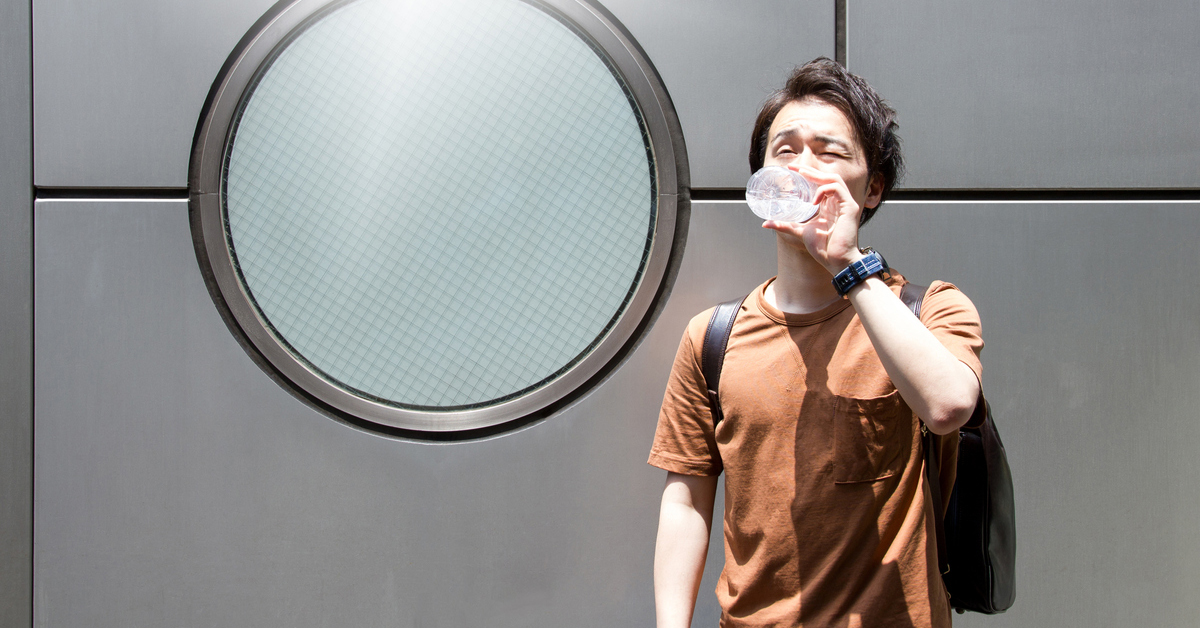Let’s face it: it’s really hot outside. Temperatures this summer have been smashing records, which makes mowing your lawn, walking to the nearest store, or having fun in the sun more dangerous than usual. While sunburn & skin cancers take most of the attention when talking about the effects of UV light, heat alone can cause life-threatening problems.
But what are the most common effects of heat on the body (hyperthermia)? What should you be on the lookout for this summer season?
UAB Medical West is here for you if you experience any of the signs or symptoms listed below. With emergency rooms in communities just like yours, we’re ready to help you or a loved one recover from too much heat. As always, if you’re experiencing an emergency, call 911. Otherwise, watch out for these heat-related ailments.
Heat-Related Illnesses
Between 2004 and 2018, an average of 702 people died from heat in the US each year. In these cases, heat was either a primary cause or contributing cause of death. Heat cramps represent the first phase in what could become a terminal condition.
Heat Cramps
Heat cramps occur when we lose too much water, electrolytes, or nutrients from excessive sweating. Your brain needs electrolytes (sodium, acids) to send electrical signals through the body and into the muscles. When you’re dehydrated and run low on electrolytes, you may experience heat cramps.
The most common signs of heat cramps include:
- Fatigue
- Muscle spasms/cramps
- Heavy sweating
- Sudden or intense thirst
Those younger than 4 or older than 65 are at increased risk of heat cramps. Obesity, alcohol use, and certain medications for heart problems or allergies may also contribute to an increased risk.
Treating Heat Cramps
If you’re feeling tired or experiencing muscle spasms/cramps, these are the most immediate steps you can take to recover:
- Rest and cool off, indoors if at all possible or in the shade
- Hydrate with clear juices, sports drinks, or water (drinking slowly)
- Massage or stretch the affected muscles (nothing too intense)
- Refrain from effort for an hour or two (or until the cramps/spasms go away)
- Visit an emergency room or call a doctor if symptoms continue
Heat Exhaustion
After heat cramps, heat exhaustion is the next phase in a developing illness. When we fail to notice or treat symptoms of heat cramps, heat exhaustion may develop. Further water and electrolyte loss can rapidly turn into a lethal illness, so it’s important to notice and address any symptoms you may have.
The most common signs of heat exhaustion include:
- Dizziness/confusion
- Headaches
- Pale, clammy skin
- Increased cramps (especially in legs, stomach, or arms)
- Fast breathing
- Quick pulse
- Internal temperatures of 100° or higher
- Extreme thirst
Treating Heat Exhaustion
Heat exhaustion is extremely dangerous and should be addressed immediately by taking most or all of the following steps:
- Rest & cool off in an air conditioned environment
- Elevate your legs above your heart
- Hydrate with water or a sports drink
- Remove your clothing (if possible)
- Take a cold shower, cold bath, or use a cold cloth
If you experience any of the signs or symptoms of heat exhaustion, it may be best to refrain from returning to work for the rest of the day. Prioritize your life and health first. The lawn, construction site, or outdoor fun can wait.
Heat Stroke
If you continue sweating through heat cramps and heat exhaustion, you may develop heat stroke. Heat strokes are deadly. Across the globe, heat is estimated to cause upwards of 5 million deaths each year, and that number is rapidly rising.
The most common signs of heat stroke include:
- Confusion, slurred speech, or seizures
- Nausea and vomiting
- Red skin
- Rapid breathing
- Racing, dangerously high heart rate
- Throbbing headaches
- An internal temperature at or near 104°
Heat strokes are fast and lethal, so it’s important to take action straight away if you notice any of these signs or symptoms.
Treating Heat Stroke
Heat stroke is a serious condition and should be treated by a medical professional as soon as possible. If you’ve decided to call an ambulance, there are steps you can take to cool yourself or others before the worst happens.
In the event of heat stroke:
- Call 911
- Immerse the individual in a cold bath
- Hydrate if possible
- Wait for help to arrive
Prevent Before You React
The best way to prevent heat-related illnesses is to remain aware of your physical condition and follow some or all of the following steps:
- Wear loose, breathable clothing
- Take frequent breaks to cool off & rest
- Hydrate frequently with water, clear juices, or sport drinks
- Avoid alcohol as it can cause dehydration
- Seek shade or a cold shower/bath if you feel overheated
- Wear a waterproof, broad-spectrum sunscreen with SPF 30 or higher & reapply every 2 hours at minimum
- Acclimate yourself to the heat before starting hard physical labor
- Check your medications for any increased risk
Stay Cool & Enjoy The Summer
The summer season is all about getting outdoors for fun, work, or vacation, but that doesn’t mean you’re completely safe from a sudden, lethal heat-related illness. Take precautions, hydrate frequently, remember your sunscreen, and call 911 if you feel unwell.
UAB Medical West is here to help you recover from the summer heat. Stay safe out there!
Remembering the signs & symptoms of heat-related illness could save lives.
UAB Medical West has emergency rooms and facilities in a community just like yours! Proudly serving Bessemer, Hueytown, Hoover, Vance, McCalla and more, we’re here to help you stay safe and enjoy your summer to the fullest. Don’t wait for more danger signs and symptoms of heat-related illnesses. Cool off, stay hydrated, and don’t forget your sunscreen!
